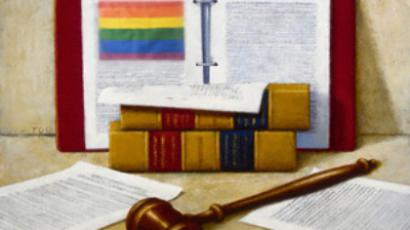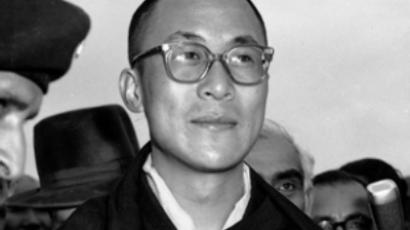Prison sentence for taking photos in UK
A new law in the UK makes it an offence to take pictures of policemen or any other law enforcement officers. Civil libertarians say Gordon Brown's Britain is becoming like George Orwell's Big Brother state.
Want a photo with a smiling Bobby? You’d better think twice.
From now on anyone could be arrested for taking pictures of the police, the armed forces, or the intelligence services, which could be “useful to a person committing or preparing an act of terrorism.”
With policemen often present at newsworthy events like football matches, marches, processions and concerts, it becomes almost impossible for many people to simply do their job.
Justin Tallis, a freelance photographer, has already got in trouble with the police while covering a protest. He says the vagueness of the new law is an invitation for abuse.
“A police officer forcibly tried to remove my camera. He didn’t cite any anti-terror laws, he just didn’t like the fact I took his photograph. And we had a short scuffle,” he said. “Another time I was threatened with section 44 of the counter terrorism article, which is bizarre, I find, to use anti-terrorism laws to stop and search and threaten photographers.”
Even the Parliamentarians are outraged at the new law. Austin Mitchell, now a chairman of Parliamentary All-Party Photography Group, is putting together a protest to the Home Office.
“I think it’s absolutely ridiculous! It’s going to open a Pandora’s Box of officiousness! People are already being stopped for all kinds of trivial reasons,” he said. “I have even had people been stopped from taking a picture of the House of Commons because it could be a terrorist target. Now that could be said of anywhere!”
A person taking a photo, according to the new law, should have “a reasonable excuse for their action.” Many in Britain see this as a part of a larger, creeping assault on civil liberties in the name of terrorist prevention.
“There are lots of little assaults going on in Britain against human rights and civil liberties and the old traditional conventions of the British constitution,” said Henry Porter, organizer of the Convention on Modern Liberty. “Britain so quickly is moving into this state where the police are unanswerable and are given the power to arrest people and imprison them for five years for the fact that they’ve just taken a picture.”
The problem is certainly wider than that. With the stop and search policy, powers to arrest without warrant, fingerprint collection, the National DNA database of innocent people and the potential introduction of identity cards, Britain, say many, is heading towards a 21st century controlled state.
Even the former head of MI5, the British domestic intelligence service, Dame Stella Rimington, has recently warned the government of the dangers of creating a police state by exploiting fears over terrorism.
With over four million CCTV cameras in the UK – the largest number in the world per capita – the state is constantly monitoring everyone’s lives.
By making it illegal to let the lens turn on themselves, the police have left everyone wondering the old saying: “Who watches the watchmen?”














